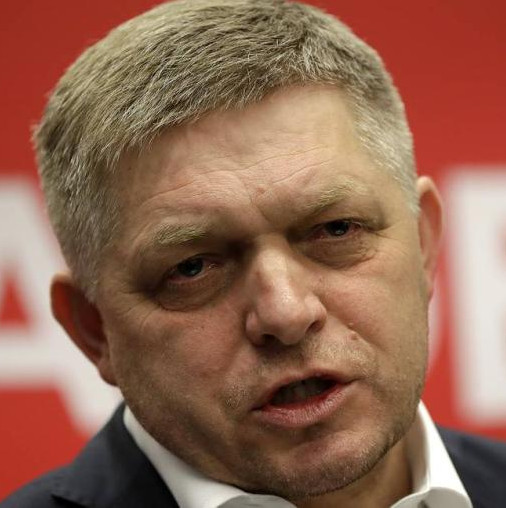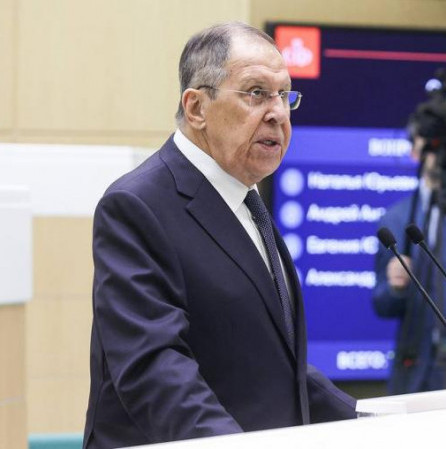
The Syrian problem discussion at the ongoing session of the United Nations does not exceed the limits of the propaganda duel so far. But this is only at first sight. In fact, the discussions are revolving around the fact how effective in general this relevant international organization is.
Foreign ministers came to the UN General Assembly in New York at a time when diplomatic efforts to resolve the Syrian crisis reached a deadlock. Russia and PRC have put a veto three times on the resolutions allowing external coercive intervention in Syria. The plan of the UN special envoy Kofi Annan has failed to be fulfilled because the opposition did not run to a political dialogue with Bashar al-Assad's regime.
The Geneva agreements by which the permanent members of UN Security Council recommended to establish a transition government in Syria, to review the Syrian constitution based on national dialogue and to hold multiparty elections remain on paper too.
Russia's foreign minister, Sergei Lavrov, has told in this regard, while talking to journalists in New York: "There is a tendency of our partners who would like to change these agreements and take the tack of unilateral pressure, not taking into account that in Syria heavily armed groups of people are warring with each other."
It is clear what the unilateral pressure is from the speech by U.S. Secretary of State Hillary Clinton at an open sitting of the Security Council on September 17. "We advocate for political change, in which Assad will not take part," she said. Retirement, resignation, immigration of Assad is a key and essentially the only thesis of rhetorical attacks we can hear from Europe and the Middle East to the address of Damascus.
There is another logic though.
Obviously, Assad is not among Moscow's or Beijing's favourite. "We are not saying this is a person who will be able to lead the new Syria," said Lavrov on the sidelines of the UN General Assembly. " And we are not looking for someone who could replace him. Personalities are not important." But, according to Lavrov, "for us it is more important that in the country the rights of all who live in the country are respected - the Sunnites, Shiites, Alawites, Druzes, Christians, Kurds, as well as their safety, economic, political and social rights. It is much more important than hunting for a certain person."
In return, Moscow offers foreign players to "fall" on all major Syrian sides, and force them to simultaneously stop the violence and move to the political dialogue. This position is shared by other members of the BRICS. However, the opposition obtains at least moral support from the West, and the civil war in Syria takes a heavy toll of human lives every day.
In the circumstances, from the UN rostrum there are calls for ignoring this organization. On Tuesday, the Emir of Qatar, Sheikh Hamad bin Khalifa Al-Thani said, as is reported by Interfax, that the Arab countries should think even of the military intervention in Syria. He reminded about a precedent: in 1976 by the decision of the League of Arab States the troops were brought into Lebanon to end the civil war. "This intervention was effective and useful," he noted. Explaining why the Arab countries should take the lead in solving the Syrian issue, he noted that the UN Security Council members can not reach a consensus on this issue.
It would seem the U.S. Secretary of State speaks to the same effect: "At a time when we see more and more bloodshed, the Security Council is inactive. I appeal once again to try to find a way to reach an agreement able to end the violence," she said. British Prime Minister David Cameron criticized even more sharply the work of the Security Council. But there is a significant nuance.
The main point here is not the new criticism of Moscow and Beijing. The main point is that the U.S.A., Great Britain, France, and most of the Arab countries are not willing to act in circumvention of the UN, without the mandate of this international organization.
The U.S. has already conducted without the consent of the UN Security Council and its key allies such as France and Germany a military operation in Syria's neighbour Iraq. The status of the self-proclaimed "coalition of the willing" added to the U.S. and UK forces neither international legitimacy nor credibility in the eyes of Iraqis. The quick military victory turned out the political collapse and loss of face.
It is hard to give up the idea that the tragic murder of the American ambassador in Libya is due to the distortion of the spirit and the letter of UN Security Council's resolution on Libya, which only allowed the introduction of no-fly zones over the country which has turned out to be an actual intervention. However, he is not the only, and perhaps not the last victim of the Libyan adventure.
The alternative is an absolute consensus and joint actions – it is these principles that are designed in the UN mechanisms. There are no other ones.
Apparently, looking forward to the battles in New York, Lavrov before his departure to the UN General Assembly, said in an interview: "Paraphrasing Churchill's famous words about democracy, I can say that the UN is not perfect, but it is the best that mankind could invent."



